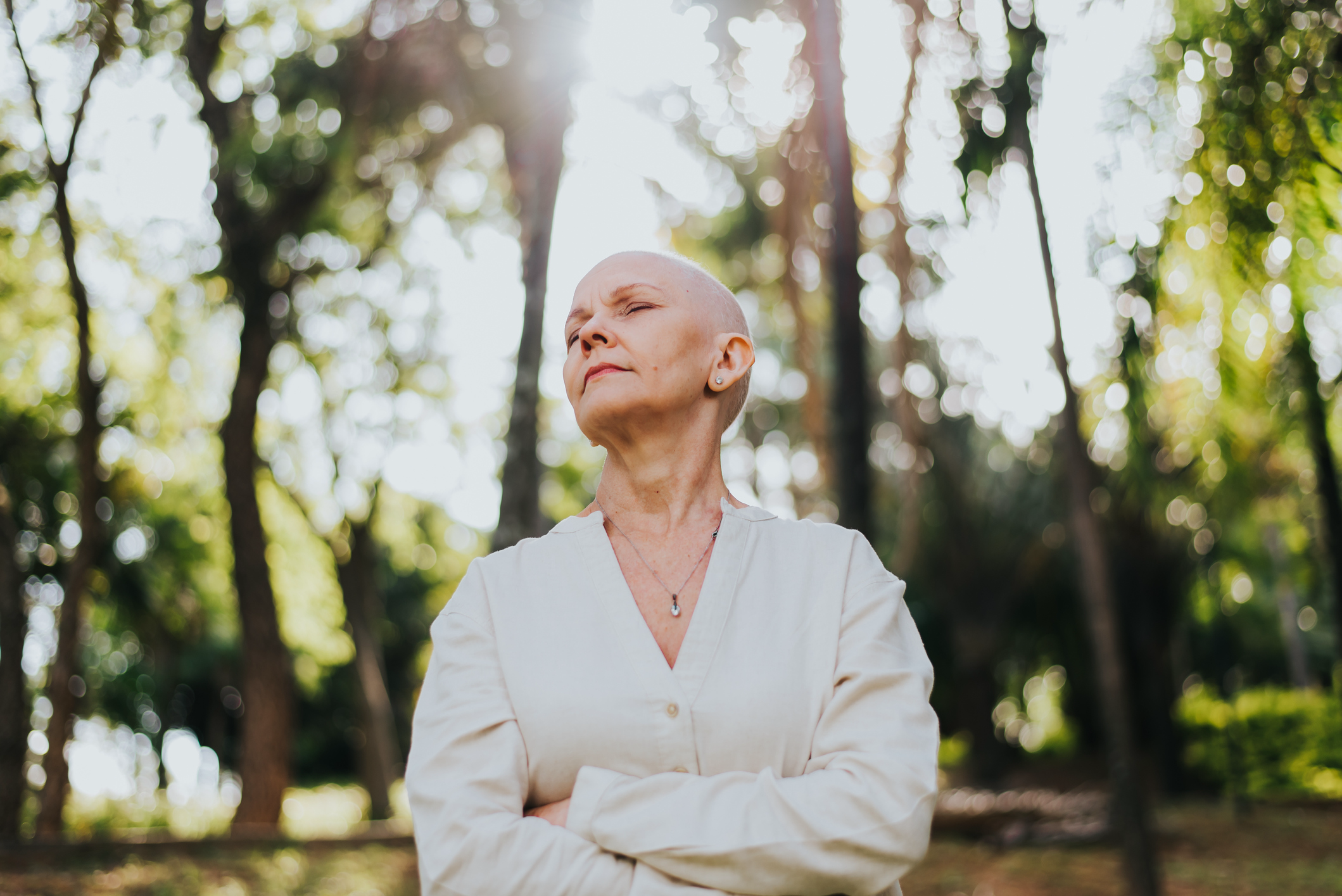
A lung cancer diagnosis is difficult and only compounded by the stigma — feeling blamed or devalued by others because of their disease — that a majority of patients experience, whether or not they have a history of smoking. Over the past several years, Timothy Williamson, assistant professor of psychological science at Loyola Marymount University, and his colleagues have linked high levels of lung cancer stigma to delays in seeking medical care, higher depression, higher anxiety, and worsening emotional and physical quality of life.
Recently, Williamson’s work has shifted toward developing and testing intervention strategies that can reduce lung cancer stigma and improve patients’ health and well-being. To bolster this effort, Williamson pursued and received a three-year, nearly $750,000 research grant from the National Cancer Institute for a project titled “Adapting and Testing a Novel Self-Compassion Intervention to Reduce Lung Cancer Stigma” (R00-CA-256351, PI: Williamson). This is the first NCI-funded research grant in LMU’s history.
“It is incredibly exciting to have Williamson join our faculty in Psychological Science, and for him to bring such a prestigious research grant with him as he begins on the tenure track here at LMU,” said Robbin D. Crabtree, dean of LMU Bellarmine College of Liberal Arts. “Not only does this kind of research funding support the early career success of a faculty member, but it supports our undergraduate students to have high impact research experiences mentored by faculty.”
“As a new faculty member at Loyola Marymount University, I am thrilled to not only lead this study among the intellectually vibrant community here,” said Williamson, “but to provide LMU students with meaningful opportunities to engage in psychological research that aims to reduce stigma, improve health, and make tangible positive impacts on patients and their families.” This is the sweet spot of an LMU education, the teacher-scholar model, in action.

The goal of this study is to test an adapted version of the Mindful Self-Compassion (MSC) psychosocial intervention to reduce lung cancer stigma, depressive symptoms, and anxiety among people with lung cancer. MSC is an evidence-based program that teaches mindfulness and self-compassion skills and has been demonstrated to reduce distressing feelings that often arise from stigma — such as shame, guilt, self-blame — among adults without cancer. In his previous position as a research scholar at Memorial Sloan Kettering Cancer Center in New York, Williamson worked closely with lung cancer patients, expert researchers, and seasoned clinicians to carefully review and modify the content of the MSC program to ensure that it is suitable, sensitive, and engaging for the lung cancer patient population. Now, Williamson and his team are ready to pilot test the reimagined intervention.
“There is a high need for supportive care programs that focus specifically on disease-specific challenges such as stigma,” said Williamson. “By delivering this intervention remotely, we can connect lung cancer patients together from across the country, reduce transportation burden, and prepare the program to be scaled more broadly for future implementation and dissemination efforts.”
Williamson will use social media to recruit three cohorts from a national sample of lung cancer patients to participate in randomized clinical trial that tests the feasibility and efficacy of this multi-week, group-based MSC intervention. Participants will engage in guided meditations, writing exercises, and personal reflection to acknowledge and process the challenges of living with lung cancer and its associated stigma. Patients will complete quantitative questionnaires four times throughout their participation as well as in-depth, qualitative interviews post-intervention to provide insights and feedback about their experience in the program.
“I incorporate qualitative and mixed-methods approaches into my research, because there are important ways that data from quantitative measures alone can fall short,” said Williamson. “Hearing from patients directly through qualitative interviews helps us to learn from their lived experiences and to understand the impact of the intervention that is not captured by our questionnaires.”
Williamson is dedicated to bridging research and practice, and he hopes that this project not only yields scientific insights but also impacts clinical and supportive care for people with lung cancer. This NCI-funded research study will support several research opportunities for LMU students to work with Williamson in his newly established Psychosocial Risk and Resilience in Stress and Medicine – PRRISM – Research Lab, which focuses on a central theme of understanding how to reduce stress, stigma, and social adversity and improve health and well-being (https://prrismlab.com).
“Williamson represents what is so special about the faculty in the LMU Bellarmine College of Liberal Arts,” said Crabtree. “These are faculty who could succeed anywhere, but who care deeply about undergraduate education, who are enlivened by teaching and mentoring, and who resonate powerfully with our mission and strategic priorities.”
In addition to the project described above, Williamson is working on several studies that address and reduce lung cancer stigma. First, he is collaborating with colleagues from Memorial Sloan Kettering Cancer Center on an NCI-funded clinical trial that tests the effectiveness of empathic communication skills training for oncology care providers to improve quality of care and reduce stigma experienced by lung cancer patients. Second, he is working with scientists from Rutgers University on a community-based participatory research project that addresses lung cancer stigma and its intersections with other forms of marginalization experienced by Black, Latino/a/x, and LGBTQ+ patients. Third, he is leading a study to examine the psychometric properties of a shorter measure of lung cancer stigma, which will reduce participant burden when completing the questionnaire.
“This NCI-funded project is one important step towards a larger goal of changing the landscape of psychosocial care for patients with lung cancer,” said Williamson, “and I am honored to be working with fantastic students and colleagues on a shared mission to improve health and lives.”



